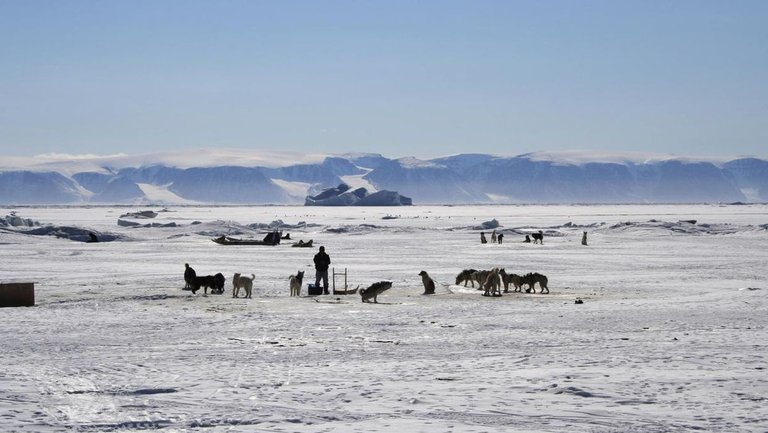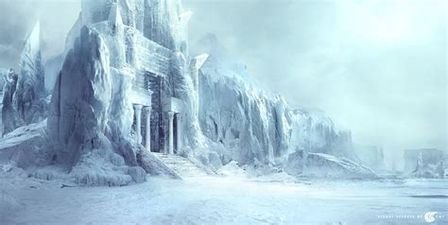Opinion - DYOR
Last week I heard people on the radio talking about ‘keeping your home warm’ as if it were a fundamental necessity. I disagree and here's why.
Humans are the only mammal that use heating. Our ancestors didn't need heating. Nothing else needs it. I have heard that some people have died from not being able to have heating. In an emergency situation like that then sure, but for most people in NZ it’s a luxury not a necessity in my opinion. I reckon most people overheat their homes and become weaker, lazier and more dependent in the process.
I don’t use heating any more. I see my breath in my living room most of the time, yet I feel warm. Last winter I would have turned on the heater, but now I've chosen to adapt to the natural air temperature whatever it may be for the purpose of becoming healthier, more independent and anti-fragile. If needed i'll buffer it, but after last week i'm adapted for the winter, plus i'd rather just put some cement in my coffee and get on with it.
Cold vs damp – The mainstream media talk about how unhealthy ‘cold and damp’ homes are. Yes for dampness, but why does coldness have to be lumped in with dampness? I understand that if a home is cold then things in there won’t dry out as fast, but it isn’t damp here even though its very cold at the moment. My understanding is that ventilation is key for preventing dampness. I keep my place well ventilated which makes it colder (in winter) but not damp. Sleep in a car with the windows up and you can see how quickly dampness can occur just from breathing without ventilation. With ambient heating most people shut the windows to ‘keep the heat in’ but if you don't use heating and have windows open (like me) this doesn't happen.
Heat vs warmth – the human temperature is 37 degrees C which is higher than any desirable air temperature in a home. This means that even if the air temp is warm, the body is still giving off heat, its just that the differential is lower so the rate of transfer is lower and therefore more easily regulated by the body. But as we know from exercise and health, things being ‘easy’ is not always good for our health. The lungs through respiration are one of the significant heat transfer systems in the body, but that is the case for every mammal, so compensation mechanisms are equipped, maybe more equipped, to manage fresh clean cold air than warm stale humid recycled air given time to adapt in the long term.
With a full merino base layer, then adding more layers as needed I have no problem at all. The human body, when adapted, can quickly and efficiently thermoregulate, increase circulation, use brown fat, exercise and other things to generate heat as needed. Even a bit of music helps. This is all part of a strong healthy metabolism. I don't think keeping these things on standby all the time is good. Use it or lose it. Who wants to be hooked up to ‘heating tubes’ all the time? Everyone is different and has different situations, but for me, no thank you.
‘Feeling’ warm is a subjective thing. If you like you can do this experiment: Fill three bowls with water, one cold, one warm, one hot. Put your left hand in the cold and right hand in the hot, wait 60 seconds or so, then put both hands in the warm water. You’ll find that the right hand ‘feels’ cold and the left hand ‘feels’ hot, yet the temperature of the water is the same. This is known as the contrast effect.
Wim Hof has been talking about the benefits of cold for years. He is a big proponent of cold showers and their health benefits. I turned off my hot water cylinder a few months ago and took only cold showers. The effects are sharpness, clarity, pain reduction, increased energy; the list goes on. This helps when adapting to the cold. It takes getting used to and may not be safe for everyone to do.
Spend to much time in a hot room, the exact opposite, yet people pay to do this at night because it feels comfortable. Having tried a hot shower recently for the first time in ages I found that my hands and feet got cold afterwards which was a bit annoying. I'll avoid taking hot showers on cold days from now on.
I think using ambient heating is similar to eating refined sugar. No other mammal eats it in nature, they (we) may like the taste because it signals energy, but its almost drug like properties hijack our bodies metabolic and neurological systems which then struggle to keep balance when processing unnaturally concentrated forms of energy. This throws our physiology out of wack, creating physical fragility, dependency, and a sense of addiction to an unhealthy environment that the conscious mind then has to deal with pressure from cravings to maintain. This is a drain on our health, confidence, independence, willpower, attention, pocket book and more.
I think the better alternative is to focus on developing the discipline to adhere to the natural environment and therefore rediscover the bodies natural ability to adjust its own internal processes built to subconsciously balance offerings found within the range of nature. Once formed into habit, this leaves the mind open and the body happy, healthy and able to consistently self actualise with power and equanimity.
Going to bed a bit earlier and sleeping a bit longer where possible in winter can help too, but that might be outside the scope of the article. However, it is likely to occur naturally as it has with me. Cool temperature is helpful for sleep.
Overall, I think the importance of ambient heating is overstated. I think in many cases it may be a counter-productive use of energy in terms of health, money, labour, and pollution. I personally use adaptation and clothing, but maintain the ability to use heating if I need it. I think this is and will continue to make me stronger, healthier, wealthier, happier and more independent. I know many will not agree with my view on this and my approach won’t be suitable for everyone, but hopefully the post was worth reading. I welcome any criticism of the ideas.


Wow you are hardcore! 😎
How cold does it get in NZ? I noticed you used a pic of a dog sledder. The people of the arctic are indeed adapted to colder temps. I was in the high arctic one summer and the locals were walking around complaining about how hot it was and how they couldn't stand it. It was 12 Celsius! 😂
On the other hand, the same people, when they lived on the Land, wore seal skin clothes. Those are very warm. They lived in tents in summer, but igloos in winter. They also made houses from sod. The inside of their winter homes were warm enough to survive the extreme weather. Yet, life was hard, food was scarce, and people died young.
There needs to be a balance.
Thanks that's Interesting I didn’t know that. I agree about balance. I'm the south which is the colder part of NZ. We’re coming out of the coldest part of the year here, it has been around 0-10.C most of the time. It's a dry cold with strong frost a couple of times a week or so. I'm a veggan and get plenty of good nutrition. I've found that having a merinoLOFT jacket and other Merino/wool gear is useful. 😄
Those temps are not too bad. It has been between 5 and 10C at night where I am and it is the middle of summer. It is a bit cool this year.